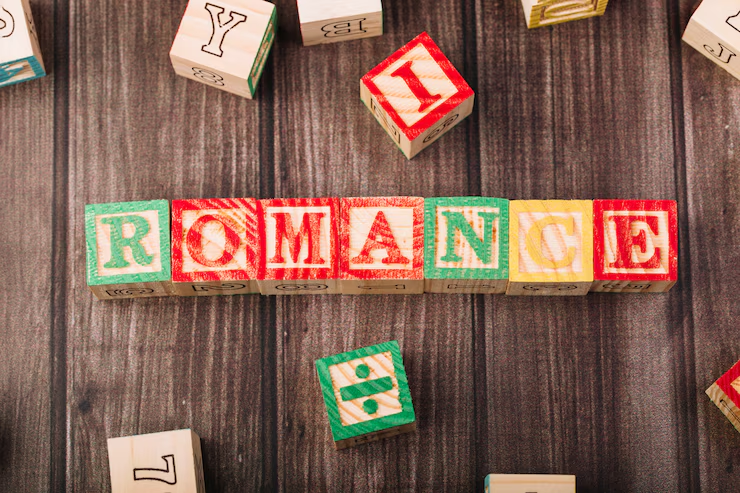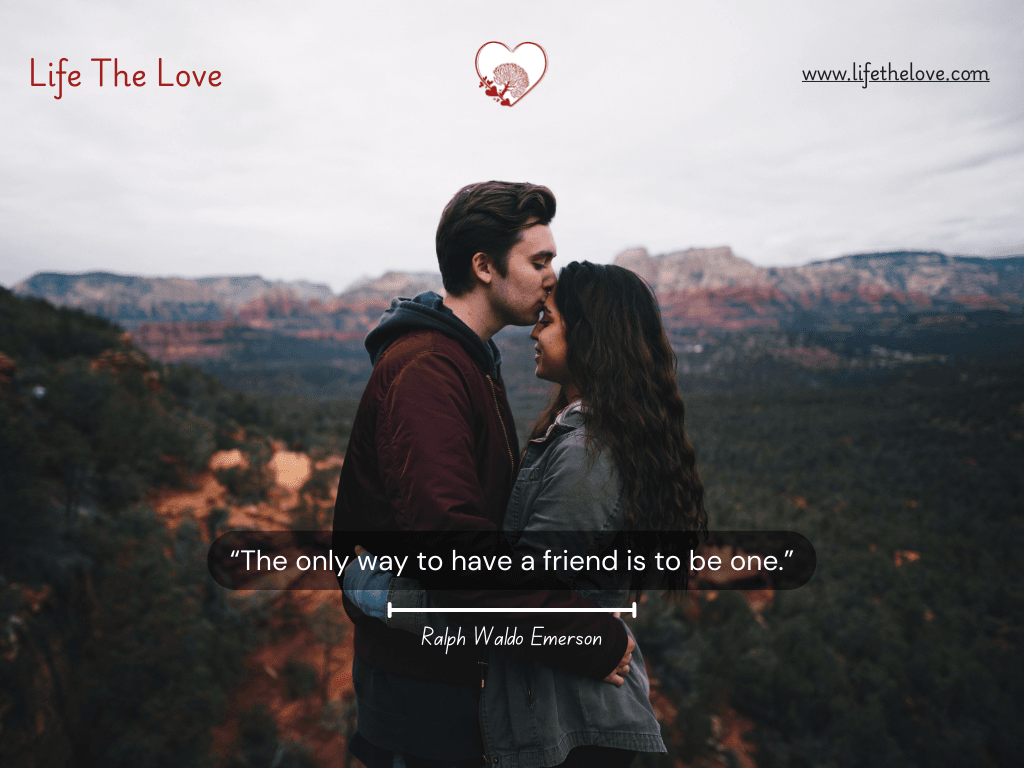Kinds of Love in Greek: Unlock True Connection Now
Have you ever looked around at your relationships and wondered, “Is this really love?” Maybe you feel a fiery passion, a comfortable companionship, or a deep sense of loyalty. Love, in all its forms, is the very fabric of our lives, yet it can be so elusive to define and understand. We use the word “love” so casually, for everything from our favorite pizza to our life partner. But what if there were different shades of love, each with its own unique flavor and depth? What if understanding these nuances could enrich your relationships and your life in ways you never imagined?
Table of Contents
The ancient Greeks, those philosophical pioneers, wrestled with this very idea. They didn’t just have one word for love; they had many, each describing a different facet of this complex human emotion. Today, we’re going to delve into this fascinating world of kinds of love in Greek, and we’ll anchor our exploration with a powerful quote that speaks directly to one of the most profound forms of love: friendship, or as the Greeks called it, Philia.
The quote we’ll be unpacking today is:
“The only way to have a friend is to be one.”
Ralph Waldo Emerson
Simple, yet profound, isn’t it? This quote by the American essayist and philosopher, Ralph Waldo Emerson, beautifully encapsulates the essence of Philia. While Emerson wasn’t Greek, his wisdom resonates deeply with the ancient Greek understanding of friendship as a cornerstone of a good life. In this article, we’re going to explore the deeper meaning of this quote, understand its connection to Philia, and discover how you can apply this ancient wisdom to cultivate more meaningful connections in your own life. Get ready to journey into the heart of friendship, Greek style!
Decoding Emerson’s Wisdom: A Deep Dive into “The Only Way to Have a Friend is to Be One”

The Quote and Its Origin: Emerson, Friendship, and the Echoes of Ancient Greece
Let’s take a closer look at our chosen quote: “The only way to have a friend is to be one.” It’s succinct, direct, and carries a powerful message about reciprocity and the active role we must play in building genuine friendships. Ralph Waldo Emerson, a leading figure in the Transcendentalist movement of the 19th century, was deeply interested in self-reliance, individualism, and the importance of personal relationships. While he lived millennia after the ancient Greeks, his philosophical leanings often echoed their emphasis on virtue, wisdom, and the pursuit of a meaningful life through connection with others.
Emerson believed in the power of individual action and responsibility. This quote, likely born from his reflections on human connection, highlights that friendship isn’t a passive experience. It’s not something you simply receive; it’s something you actively create and nurture. He’s not just talking about acquaintances or casual buddies; he’s pointing towards the deeper, more profound connections that the Greeks termed Philia.
Why is this quote so powerful in the context of kinds of love in Greek? Because it immediately draws a parallel to Philia. Philia, in ancient Greece, went far beyond casual camaraderie. It represented a deep and enduring bond based on mutual respect, shared values, and a commitment to the well-being of the other person. Think of it as the love between brothers in arms, loyal companions, or soulmates who aren’t romantically involved. It’s a love that thrives on shared experiences, mutual support, and a genuine appreciation for the other person’s character.
Emerson’s quote acts as a modern-day articulation of this ancient wisdom. It’s a call to action, urging us to embody the qualities we seek in a friend. To receive Philia, we must first embody Philia ourselves. It’s a concept that resonates across cultures and time periods, highlighting the timeless nature of true friendship.
The Deeper Meaning: Unpacking the Layers of “Being a Friend”

Let’s dissect the quote phrase by phrase to truly grasp its depth:
- “The only way…” This opening is emphatic. Emerson isn’t suggesting one of many ways; he’s stating the fundamental, non-negotiable path. It emphasizes the active and intentional nature of friendship. It’s not a passive wish; it’s an active pursuit.
- “…to have a friend…” The desire is universal. We all yearn for connection, for someone to share our joys and sorrows, to laugh with and lean on. “To have a friend” speaks to this fundamental human need for companionship and belonging.
- “…is to be one.” Here’s the core message. It’s a mirror reflecting back at us. To experience the richness of friendship, we must first embody the qualities of a good friend. It’s not about waiting for someone else to initiate; it’s about taking the first step ourselves. It’s about embodying the very essence of Philia.
But what does it actually mean to “be a friend,” especially in the context of Philia? It’s not just about being friendly or sociable. Philia is a much deeper connection. Let’s break down the key elements of “being a friend” in the spirit of Philia:
- Be Trustworthy and Loyal: Philia is built on a foundation of trust. It means being someone your friend can confide in, knowing their secrets are safe with you. Loyalty means standing by your friend through thick and thin, offering unwavering support, and being a constant presence in their life. Think of Damon and Pythias, the legendary Greek friends whose loyalty was so profound that Pythias offered himself as collateral for Damon’s life. That’s Philia in its most dramatic form!
- Be Empathetic and Understanding: True friendship requires empathy – the ability to understand and share the feelings of another. It means listening actively, putting yourself in your friend’s shoes, and offering compassion when they are hurting. It’s about celebrating their triumphs as if they were your own and offering comfort during their setbacks.
- Be Supportive and Encouraging: A Philia-based friendship is a partnership in growth. It’s about encouraging your friend to pursue their dreams, offering constructive feedback, and celebrating their achievements, big or small. It’s about being their cheerleader and their sounding board.
- Be Present and Invest Time: Friendships, like any relationship, require investment. “Being a friend” means making time for your friends, even when life gets busy. It’s about being present in moments of joy and in times of need. A simple phone call, a thoughtful text, or just showing up can speak volumes.
- Be Forgiving and Patient: No friendship is perfect. There will be disagreements, misunderstandings, and moments of frustration. “Being a friend” also means being forgiving, practicing patience, and understanding that everyone makes mistakes. Philia is resilient and can weather storms if nurtured with forgiveness and understanding.
Imagine friendship as a garden. To have a beautiful garden (friendships), you must actively cultivate it. You need to plant seeds (initiate connections), water them regularly (invest time and effort), weed out negativity (address conflicts constructively), and nurture growth (support and encouragement). Emerson’s quote, viewed through the lens of Philia, is a guide to becoming a masterful gardener of your friendships.
Personal Reflection: My Own Journey with Philia and Friendship
Thinking about Emerson’s quote and the concept of Philia brings to mind my own experiences with friendship. I remember a time when I was going through a particularly tough period in my life. Everything felt overwhelming, and I felt incredibly isolated. I had acquaintances, people I chatted with occasionally, but I lacked that deeper connection, that Philia that the Greeks valued so highly.
It was during this time that I stumbled upon the idea of actively “being a friend.” I realized I had been so focused on my own struggles that I hadn’t been investing in the relationships around me. Inspired by the philosophy of Philia, I decided to change my approach. I started reaching out to people, not just to talk about myself, but to genuinely listen to them, to offer support, and to be present in their lives. It wasn’t always easy; it required vulnerability and stepping outside my comfort zone.
One particular instance stands out. A colleague, Sarah, seemed withdrawn and quiet. Instead of just noticing it and moving on, I decided to “be a friend.” I invited her for coffee, not with an agenda, but simply to connect. I listened as she shared her challenges, offered a listening ear, and genuine empathy. I didn’t try to fix her problems, but I offered my support and understanding. To my surprise, this small act of “being a friend” created a shift. Sarah started opening up more, and a genuine friendship began to blossom. It wasn’t a dramatic overnight transformation, but a gradual deepening of connection built on mutual respect and care – the very essence of Philia.
This experience taught me the profound truth of Emerson’s quote. Friendship isn’t a passive pursuit; it’s an active creation. By focusing on embodying the qualities of a good friend – trustworthiness, empathy, support, presence, and forgiveness – I not only cultivated deeper friendships but also enriched my own life in immeasurable ways. Understanding Philia wasn’t just an intellectual exercise; it was a practical guide to building more meaningful and fulfilling relationships.
Applying the Quote in Life: Actionable Steps to Cultivate Philia

So, how can you practically apply Emerson’s wisdom and the principles of Philia to enhance your own relationships? Here are some actionable steps you can take today:
- Reflect on Your Current Friendships: Take a moment to evaluate your existing friendships. Are they based on genuine Philia? Do they embody mutual respect, support, and trust? Identify areas where you can strengthen these bonds by consciously “being a friend.”
- Initiate Connection: Don’t wait for others to reach out. Take the initiative to connect with people you value. Send a message, suggest a coffee, or simply check in to see how they are doing. Small gestures can make a big difference.
- Practice Active Listening: When you’re with your friends, truly listen. Put away distractions, make eye contact, and focus on understanding their perspective. Ask open-ended questions and show genuine interest in what they have to say.
- Offer Support and Encouragement: Be your friend’s cheerleader. Celebrate their successes, offer encouragement during challenges, and be a source of strength when they need it most. A simple “I believe in you” can be incredibly powerful.
- Be Vulnerable and Authentic: Philia thrives on authenticity. Be willing to share your own vulnerabilities and be genuine in your interactions. This creates a safe space for deeper connection and mutual understanding.
- Invest Time and Effort: Friendships need nurturing. Make time for your friends, even amidst busy schedules. Schedule regular catch-ups, plan activities together, and prioritize your friendships.
- Practice Forgiveness and Patience: Remember that friendships are not always smooth sailing. Be prepared to forgive minor offenses, practice patience during challenging times, and communicate openly to resolve conflicts constructively.
- Be a Good Friend to Yourself: Finally, remember that “being a friend” also starts with yourself. Practice self-compassion, be kind to yourself, and nurture your own well-being. You can only truly offer Philia to others when you cultivate it within yourself first.
By consciously applying these principles, you can cultivate deeper, more meaningful friendships rooted in the ancient wisdom of Philia. It’s a journey of active participation, reciprocity, and genuine care, and the rewards are immeasurable – a life enriched by true connection and lasting companionship.
Conclusion: Embrace Philia and Cultivate Deeper Connections
Emerson’s quote, “The only way to have a friend is to be one,” is more than just a catchy phrase; it’s a profound invitation to actively participate in the creation of meaningful friendships. When viewed through the lens of the ancient Greek concept of Philia, it becomes a powerful guide to cultivating deep, enduring connections based on trust, loyalty, empathy, and mutual support. It reminds us that friendship isn’t a passive gift we receive, but an active garden we must tend with care, intention, and reciprocity.
The ancient Greeks understood that love wasn’t monolithic. Philia, alongside other forms of love like Eros (passionate love), Agape (unconditional love), Storge (familial love), Ludus (playful love), and Pragma (enduring love), paints a rich and nuanced picture of human connection. By understanding these different kinds of love in Greek, we gain a deeper appreciation for the complexities of our relationships and the diverse ways we can experience love in our lives.
So, take Emerson’s wisdom to heart. Reflect on your own friendships, identify areas for growth, and consciously choose to “be a friend.” Embrace the spirit of Philia, and watch as your relationships deepen, your connections strengthen, and your life becomes richer with the invaluable treasure of true friendship. It’s a journey worth embarking on, a path towards a more connected and fulfilling life, guided by the timeless wisdom of both ancient Greece and a 19th-century American sage.
Now, we’d love to hear from you! How does Emerson’s quote resonate with you? What does “being a friend” mean in your life? Share your thoughts and experiences in the comments below. Let’s create a community of connection and shared wisdom!

